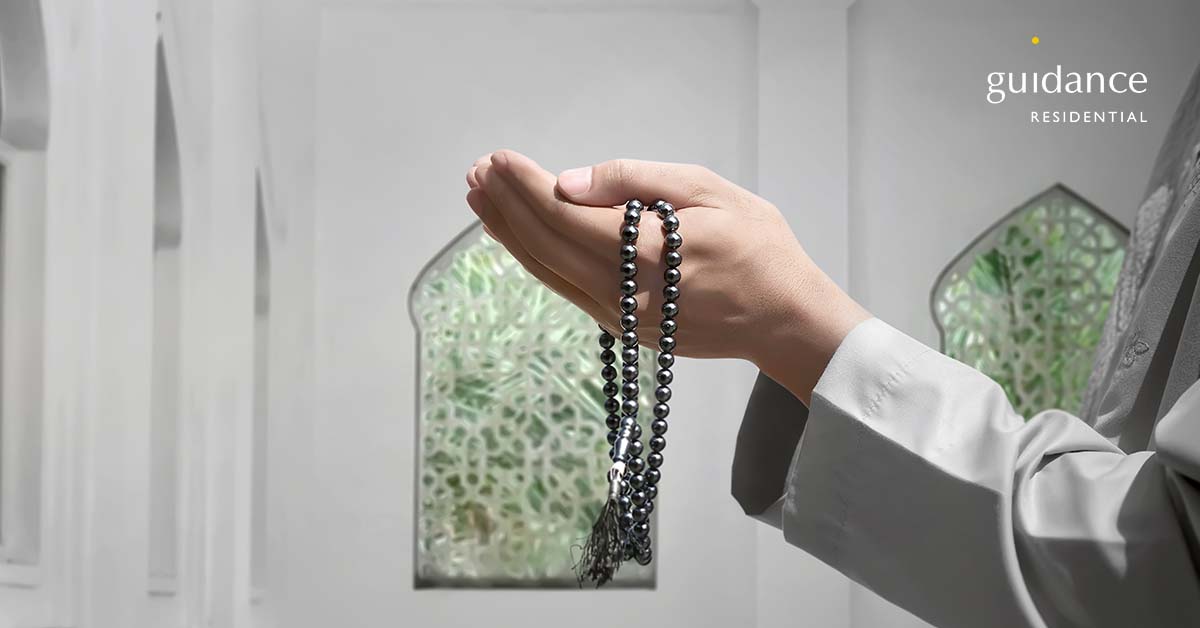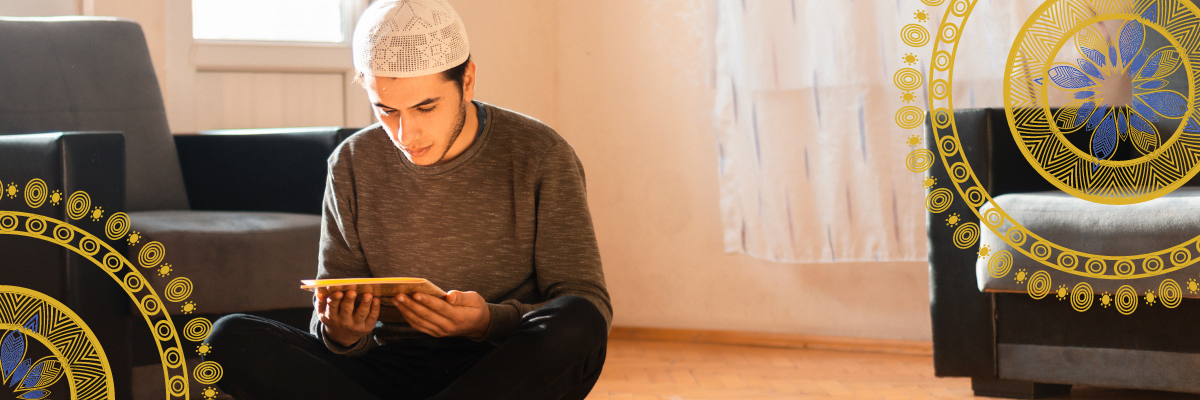Make a Personal Dua List this Ramadan

Ramadan offers a special opportunity to engage in dua, or personal supplication, to Allah. As Muslims observe this holy month all around the world, they turn to Allah with their heartfelt desires, seeking guidance, forgiveness, and blessings.
To make the most of your dua at this sacred time, you may consider preparing a dua list.
This blog will guide you through the steps of creating a personal dua list for Ramadan.
A Month Unlike Any Other
Ramadan, the ninth month on the Islamic calendar, is a time unlike any other, offering extraordinary spiritual opportunities for Muslims to strengthen their connection with Allah.
Ramadan fasting is one of the five pillars of Islam. It teaches discipline, self-control, patience, and gratitude, while also reminding believers of the struggles faced by those less fortunate. This heightened awareness fosters religious beliefs of compassion and generosity, as giving in charity holds immense rewards during this sacred time on the Muslim calendar.
Ramadan is the month in which the Qur’an was first revealed, so each year, it is a chance to engage deeply with the Qur’an through reading, recitation and reflection. Many Muslims aim to complete the Qur’an during this month, immersing themselves in its guidance and seeking Allah’s mercy through it.
Additional nightly prayers bring communities together at the mosque during the month of Ramadan, creating an atmosphere of unity and devotion. This special prayer provides an opportunity to reflect on one’s deeds and invoke Allah’s forgiveness. Perhaps most notably, Laylat al-Qadr, the Night of Decree, falls within the last 10 nights of Ramadan. This night is described as being better than a thousand months, and Muslims dedicate themselves to prayer, remembrance of Allah, and supplication, seeking blessings and forgiveness.
Ramadan is known as the time when adult Muslims abstain from eating and drinking throughout the daylight hours. But far beyond the food-related health benefits of Islamic fasting, Ramadan shifts focus away from worldly distractions and centers it on spiritual growth. It is a month that challenges the soul to rise above physical needs and desires, creating a profound sense of peace and nearness to Allah.
These opportunities make Ramadan a powerful month of transformation, purification, and countless rewards.
Dua During Ramadan
In addition to all of its other blessings, the Islamic month of Ramadan is a time rich with opportunities for making dua, or supplications.
Muslims are encouraged to engage in sincere dua, seeking forgiveness, guidance, and blessings from Allah during this sacred period. The moments before iftar, after completing the daily prayers or night prayers, and in the stillness of the night, especially during the last ten days of Ramadan, are particularly special times for supplication. Laylat al-Qadr, the special Night of Decree, is a night of immense spiritual significance where the rewards for worship and dua are multiplied, making it an unparalleled opportunity to connect with Allah.
Through heartfelt supplications, Ramadan observers can pour out their hopes and concerns and deepen their reliance on Allah, trusting in His mercy and wisdom.
Here are some tips for making the most of your dua this Ramadan:
1. Understand the Power and Importance of Dua
When setting out to make dua, it can help to first take a moment to think about the significance dua holds in Islam. Dua is not just the act of asking; it is an expression of humility, dependence on Allah, and acknowledgment of all of Allah’s blessings and His infinite mercy and power.
Allah says in the Quran, “And your Lord says, ‘Call upon Me; I will respond to you.'” (Surah Ghafir, 40:60).
No supplication goes unnoticed, elevating the act of dua to a faithful act of trust, hope, and surrender.
During Ramadan, especially, dua carries even greater importance.
The Prophet Muhammad (SAW) said:
“The supplications of three persons are never turned away: a just ruler, a fasting person until he breaks his fast, and the supplication of an oppressed person …” (Sunan Ibn Majah)
Recognizing the honor of being able to connect with Allah during these precious fasting hours motivates us to prepare our dua with care and intentionality.
2. Reflect on Your Needs and Aspirations
The first step in creating a personal dua list is self-reflection. Take some time to think deeply about what you truly need from Allah. These thoughts can encompass your spiritual growth, your personal and professional life, the well-being of your family, or specific worldly goals. By reflecting on your life with sincerity, you open your heart to include all aspects of your existence in your conversations with Allah.
Consider breaking your list into specific categories to ensure you approach this process holistically. For example, you could include:
- Spiritual Needs – Guidance to improve your faith, consistency in prayer, strength to overcome sins, or love for ibadah (worship)
- Personal Goals – Academic success, financial stability, good health, or achieving a lifelong dream
- Relationships – Blessings and peace in family relationships, strengthening your marriage, or righteous upbringing of children
- For Others – Praying for loved ones, the global Muslim community, and those who are suffering and oppressed
- For the Hereafter – Asking for Allah’s mercy, protection from Hellfire, and the ultimate reward of Jannah
By categorizing your personal dua needs, you make it easier to recall and cover all areas of your life while in prayer.
3. Use Specific and Meaningful Language
Include the beautiful names of Allah that relate to your supplication.
For example:
- If you are asking for forgiveness, call upon Al-Ghafoor (The Most Forgiving).
- If you are asking for sustenance, call upon Ar-Razzaq (The Provider).
- If you are yearning for compassion, use Ar-Rahman (The Most Merciful).
The names of Allah provide a profound way to build your connection and heighten the sincerity of your dua.
4. Follow the Etiquettes of Dua
Rather than jumping right in with our requests, get in the proper mindset by remembering the bigger picture and being grateful for what He SWT has already given.
The Prophet Muhammad (SAW) said:
“When anyone of you makes dua, let him start by glorifying his Lord and praising Him, then let him send blessings upon the Prophet (SAW), then let him pray for whatever he wants.” (Abu Dawud)
5. Include Duas from the Quran and Sunnah
The Quran and Hadith offer numerous beautiful prayers that address various aspects of life and spirituality. By incorporating these into your list, you can benefit from the words directly taught by Allah and His Messenger. Some examples include:
- For Guidance and Mercy: “Our Lord, grant us from Yourself mercy and prepare for us from our affair right guidance.” (Surah Al-Kahf, 18:10).
- For Goodness in This Life and the Hereafter: “Our Lord, give us in this world that which is good and in the Hereafter that which is good, and protect us from the punishment of the Fire.” (Surah Al-Baqarah, 2:201).
- For Forgiveness: “My Lord, forgive and have mercy, for You are the best of the merciful.” (Surah Al-Mu’minun, 23:118).
6. Take Advantage of Special Times
You can increase the chance of your dua’s acceptance by making them during certain times.
These include:
- While fasting
- When you break the fast
- The last third of the night, especially during extra night prayer
- After prayers
- Between adhan and iqama
- During sajda (prostration)
- When it is raining
- The Night of Power (one of the last 10 nights of Ramadan)
7. Remember Others
Keep a list to remember specific people you wish to include in your duas. These might include:
- Parents and grandparents
- Children and grandchildren
- Siblings and other relatives
- Beloved friends—those you see often and those you haven’t seen for a long time
- People who are ill or going through a hard time
- People who have benefited you
- People who have asked you for dua
8. More Duas to Have on Hand
The dua most often recited by the Prophet (SAW) was:
“Allahumma aatina fid-dunya hasana, wa fil-akhirati hasana, wa qina ‘adhab an-naar.”
O our Lord! Give us in this world that which is good and in the Hereafter that which is good, and save us from the punishment of the Fire. (Bukhari and Muslim)
A dua for spiritual guidance:
“Rabbana la’tuzigh qulubana ba’da idh hadaitana wa hab lana minladun-ka rahmah, innaka antal Wahhab.”
Our Lord! Let not our hearts deviate after you have guided us and grant us from yourself mercy. Indeed, you are the Bestower. (Quran 3:8)
A dua for help with a difficult problem:
“Rabbana ‘atina mil-ladunka Rahmataw wa hayyi lana min amrina rashada.”
Our Lord! Bestow on us Mercy from Thyself, and dispose of our affair for us in the right way. (Quran 18:10)
May all of your duas be accepted! Ameen.
Ramadan wishes from Guidance Residential
Every Ramadan we’re reminded of the blessings of home. Since 2002, Guidance Residential has helped over 40,000 families celebrate Ramadan in their new home. We are so thankful to be part of their celebration, and we wish you a joyful and meaningful Ramadan. Ramadan Kareem!
Guidance Residential remains the #1 U.S. Islamic home financing provider, with more than 40,000 families assisted over more than 20 years. Learn more about our co-ownership model of Islamic home financing, and get started on your home finance journey today.
The team at Guidance Residential is here for you, from the first step of pre-qualification or pre-approval, on through to finding the right real estate professional for you and your family — or refinancing a home you already own. We invite you to explore the home buying process with Guidance Residential today. You can also instantly calculate an estimate specific to your personal situation with our finance calculators online.
Your Guidance Residential Account Executive is here to help with any questions. Looking to refinance or purchase? Have a friend or family member who is looking for a home? Call 1.866.Guidance, or start an application today.
Originally published in May 2019, updated January 2025.




